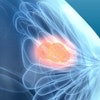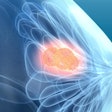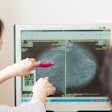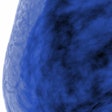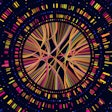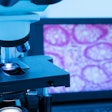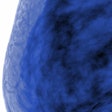
Postmenopausal women newly diagnosed with breast cancer -- but without any hereditary risk factors -- may benefit from genetic testing for cancer-related mutations, according to a study published March 10 in JAMA.
The study addresses the question of who exactly should undergo breast cancer genetic testing, wrote a team led by Dr. Allison Kurian of Stanford University.
"There's been a lot of controversy in the field as to whether every woman with breast cancer should receive genetic testing, in part because we didn't know how prevalent cancer-associated mutations are in this largest subgroup of newly diagnosed people -- that is, women who develop breast cancer after menopause without the presence of any known hereditary risk factors," Kurian said in a statement released by the university.
Women with inherited mutations such as those found in the BRCA1 and BRCA2 genes are vulnerable to other cancers, and one in 40 postmenopausal women diagnosed with breast cancer before age 65 have genetic mutations in their BRCA1 or BRCA2 genes -- a prevalence comparable to that of Ashkenazi Jewish women, the team noted.
The U.S. Preventive Services Task Force (USPSTF) recommends that Ashkenazi women discuss with their doctors whether genetic testing would be helpful, and it's likely that women diagnosed with breast cancer at age 65 or younger could benefit from genetic testing as well, Kurian and colleagues wrote.
To explore the issue, Kurian's group conducted a study that included data from more than 4,500 participants in the Women's Health Initiative, an investigation into postmenopausal health that enrolled 160,000 U.S. women ages 50 to 79 between 1993 and 1998. The team assessed the prevalence of cancer-associated mutations in 10 breast cancer risk genes, comparing 2,195 women diagnosed with breast cancer at an average age of 73 to 2,322 women without the disease.
About 3.5% of women with breast cancer had a mutation in at least one of the 10 genes, compared with 1.3% of women without cancer, the researchers reported. When they focused only on BRCA1 and BRCA2 genes in women diagnosed with breast cancer before the age of 65, they found that 2.2% of this group had mutations, compared with 1.1% of those without the disease.
However, the researchers also found that only 31% of women with cancer and 20% of those without -- both groups with BRCA1 and BRCA2 mutations -- would have been recommended for genetic testing under current National Comprehensive Cancer Network (NCCN) guidelines (which state that women younger than 46 who are diagnosed with breast cancer should have genetic testing, regardless of family history or cancer subtype).
"Now we know that the prevalence of cancer-associated BRCA1 and BRCA2 mutations in women diagnosed with breast cancer after menopause rivals that in women of Ashkenazi Jewish descent -- a population that is currently encouraged to discuss genetic testing with their doctors -- we finally have a read on the likely benefit of testing this most common subgroup of breast cancer patients," Kurian said in the statement.



